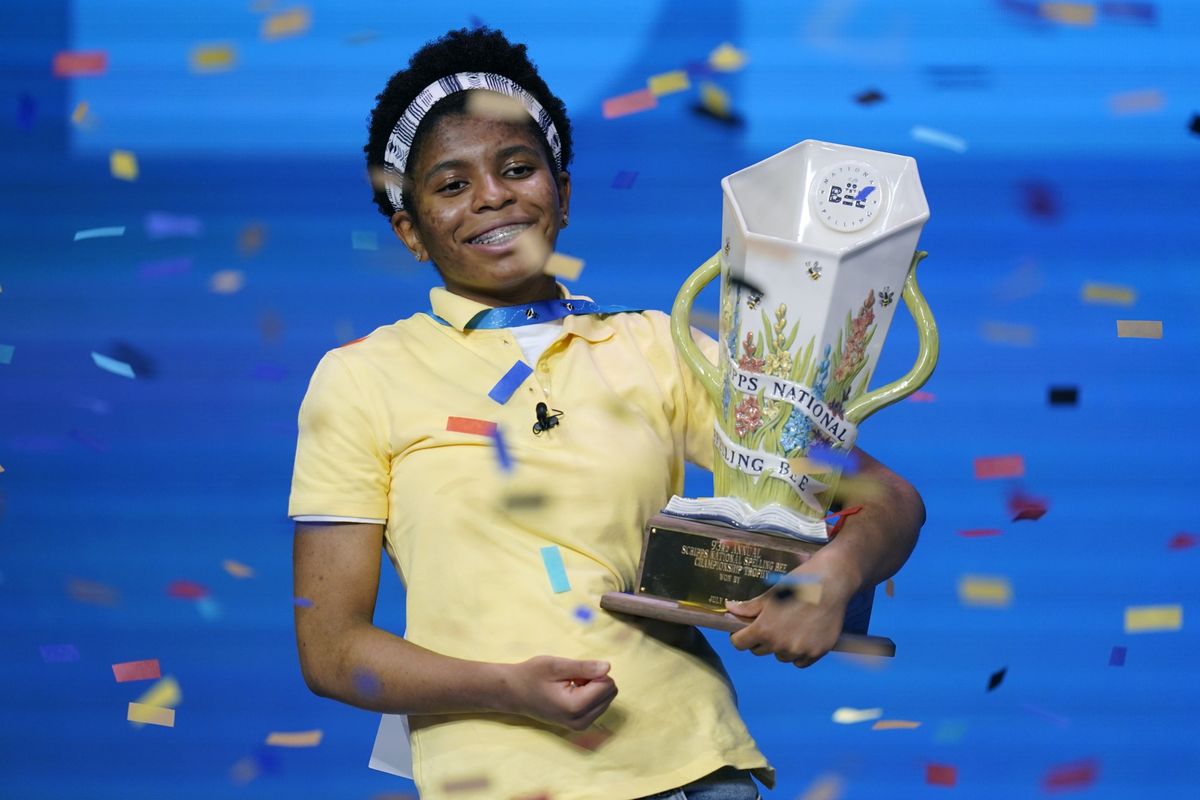Image of Indian tea hit by re-export of cheap tea: TAI
An apex body of tea planters and traders on Thursday said that the image of Indian tea has been hit by the re-export of cheap tea imported from African and Asian nations.
MacNolia Cox in 1936 became the first Black finalist at the bee and wasn’t allowed to stay in the same hotel as the rest of the spellers.

Zaila Avant-garde (Photo: Twitter)
Zaila Avant-garde understood the significance of what she was doing as she stood on the Scripps National Spelling Bee stage, peppering pronouncer Jacques Bailly with questions about Greek and Latin roots.
Zaila knew she would be the first African American winner of the bee. She knew Black kids around the country were watching Thursday night’s ESPN2 telecast, waiting to be inspired and hoping to follow in the footsteps of someone who looked like them. She even thought of MacNolia Cox, who in 1936 became the first Black finalist at the bee and wasn’t allowed to stay in the same hotel as the rest of the spellers.
Advertisement
But she never let the moment become too big for her, and when she heard what turned out to be her winning word — “Murraya,” a genus of tropical Asiatic and Australian trees — she beamed with confidence. It was over.
Advertisement
Declared the champion, Zaila jumped and twirled with joy, only flinching in surprise when confetti was shot onto the stage.
“I was pretty relaxed on the subject of Murraya and pretty much any other word I got,” Zaila said.
The only previous Black champion was also the only international winner: Jody-Anne Maxwell of Jamaica in 1998. The bee, however, has still been a showcase for spellers of color over the past two decades, with kids of South Asian descent dominating the competition. Zaila’s win breaks a streak of at least one Indian-American champion every year since 2008.
Zaila has other priorities, which perhaps explains how she came to dominate this year’s bee. The 14-year-old from Harvey, Louisiana, is a basketball prodigy who owns three Guinness world records for dribbing multiple balls simultaneously and hopes to one day play in the WNBA or even coach in the NBA. She described spelling as a side hobby, even though she routinely practiced for seven hours a day.
Many top Scripps spellers start competing as young as kindergarten. Zaila only started a few years ago, after her father, Jawara Spacetime, watched the bee on TV and realized his daughter’s affinity for doing complicated math in her head could translate well to spelling. She progressed quickly enough to make it to nationals in 2019 but bowed out in the preliminary rounds.
That’s when she started to take it more seriously and began working with a private coach, Cole Shafer-Ray, a 20-year-old Yale student and the 2015 Scripps runner-up.
Sometimes she knew more than she let on. Part of her strategy, she said, was to ask about roots that weren’t part of the word she was given, just to eliminate them from consideration.
Only one word gave her trouble: “nepeta,” a genus of mints, and she jumped even higher when she got that one right than she did when she took the trophy.
Most of the bee was held virtually, and only the 11 finalists got to compete in person, in a small portion of a cavernous arena at the ESPN Wide World of Sports complex in Florida that also hosted the NBA playoff bubble last year.
(With inputs from AP)
Advertisement